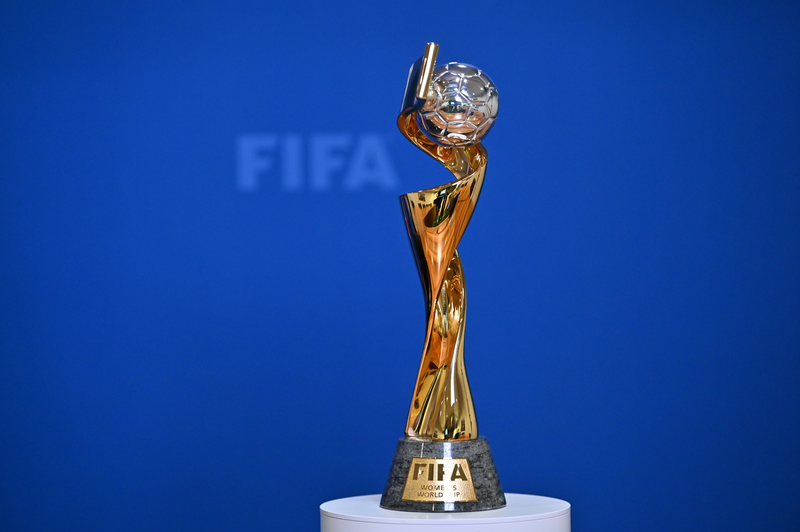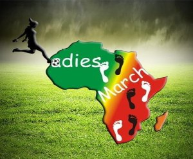By Chibuogwu Nnadiegbulam
In a few days – four to be exact, the much-anticipated 2023 FIFA Women’s World Cup will kick-off Down Under, and you are probably hoping that Africa could unlock a new level of achievement in the tournament which began 32 years ago in China. Maybe finally bringing the trophy home? But for that to happen, going beyond the quarter-finals for the first time is crucial and Morocco’s historic feat last December – becoming the first African country in history to reach the Men’s World Cup semi-finals – can serve as an inspiration.
Morocco are set to become the first Arab nation to play in the Women’s World Cup; Zambia will be the first landlocked nation in Africa to feature in a senior World Cup of either men’s or women’s; reigning African champions South Africa will be participating in their second successive Women’s World Cup; and Nigeria are one of seven teams to have qualified for all the editions of the Women’s World Cup since 1999. These four teams carry the hopes of the continent at Australia/New Zealand 2023 which begins on July 20.
Here are some facts about Africa’s participation at the FIFA Women’s World Cup isnce 1991 as we look ahead to Nigeria getting the ball rolling for Team Africa when they take on reigning Olympic champions Canada on July 21.
EIGHT – A total of eight African teams, including Morocco and Zambia, have made it to the FIFA Women’s World Cup. They are: Nigeria (9), Ghana (3), Cameroon (2), South Africa (2), Equatorial Guinea (1), Cote d’Ivoire (1), Morocco (1), Zambia (1).
[Eight teams are set to make their debut at the 2023 FIFA Women’s World Cup: Haiti, Morocco, Panama, Philippines, Portugal, Republic of Ireland, Vietnam, Zambia. That will make it 44 teams in total to have ever graced the global showpiece. Out of these 44, only 7 have been to every edition since 1999: United States, Germany, Norway, Sweden, Brazil, Japan and Nigeria]
QUARTER-FINALS – Nigeria’s quarter-final finish at the 1999 edition of the tournament – which featured 16 teams – remains Africa’s best performance till date. The Super Falcons’ quarter-final defeat to Brazil is also one of the most memorable matches involving an African team in the history of the tournament. Brazil subdued Nigeria in the first half to take a commanding 3-0 lead into halftime, but Nigeria staged a shocking comeback in the second half to tie the game and force extra time. In the 104th minute, however, Sissi converted a freekick to win the match for Brazil. It was also the first golden goal in the history of women’s football (at that time, a rule was in place whereby the first goal in extra time would end the match).
ROUND OF 16 – With the expansion of the tournament to 24 teams at Canada 2015 came the Round of 16 stage. In Canada, Cameroon, making their debut appearance, became the second African team to go beyond the group stage.
TWO AFRICAN TEAMS PROGRESS – Then France 2019 was two African teams progress from the group stage for the first time in the same edition; Nigeria and Cameroon.
MOST NUMBER OF GROUP STAGE WINS – Nigeria and Cameroon are the teams with the most wins at the group stage – two. The Super Falcons achieved this in 1999 while the Indomitable Lionesses achieved this in 2015.
BIGGEST WIN – In 2015 Cameroon beat Ecuador 6-0 in their opening game. That result remains the biggest win by an African side at the FIFA Women’s World Cup.
BIGGEST DEFEAT – The biggest defeat for an African side was also recorded in Canada 2015 when Ivory Coast, also making their debut, suffered a 10-0 spanking at the hands of Germany.
NO GOAL – Nigeria did not score any goals in the 1991 and 2003 editions of the tournament. Every other African team that has participated registered at least one goal.
FIRST GOAL – Africa’s first ever goal at the FIFA Women’s World Cup came in the second edition when Rita Nwadike scored in the 26th minute of Nigeria’s second group game against Canada. The match ended 3-3.
FIRST HAT-TRICK – Cameroon’s Gaëlle Enganamouit made history in 2015 by becoming the first African to score a hat-trick in a FIFA Women’s World Cup – in the 6-0 victory over Ecuador.
HIGHEST GOAL SCORER(S) – Nkiru Okosieme (Nigeria), Rita Nwadike (Nigeria), Gaelle Enganamouit (Cameroon), Gabrielle Onguéné (Cameroon), Ajara Nchout (Cameroon) have three WWC goals each.
HIGHEST NUMBER OF GOALS BY AN AFRICAN TEAM IN A SINGLE WWC – Cameroon scored nine goals at Canada 2015.
HISTORIC CLEAN SHEET – At 18 years and 186 days, Nigeria’s Chiamaka Nnadozie become the youngest goalkeeper to keep a clean sheet at a Women’s World Cup. She achieved this in 2019 as Nigeria beat South Korea 2-0.
SIX WORLD CUPS Nigeria’s 40-year-old defender and captain Onome Ebi will be the oldest participant at this year’s Women’s World Cup. She is set to become the first female or male African player to perform at six World Cups.
TOTAL NUMBER OF WINS – There have been a total of eight wins for African sides at the FIFA Women’s World Cup. (Nigeria – 4 from 26 matches; Cameroon – 3 from 8 matches; Ghana – 1 from 9 matches).
PERFORMANCE TABLE OF AFRICAN TEAMS UNTIL 2019
Team App Pld W D L GF GA GD
Nigeria 8 26 4 3 19 20 63 –43
Cameroon 2 8 3 0 5 12 12 0
Ghana 3 9 1 1 7 6 30 –24
Equatorial Guinea 1 3 0 0 3 2 7 –5
South Africa 1 3 0 0 3 1 8 –7
Ivory Coast 1 3 0 0 3 3 16 –13
—————————————————————————————————-
Morocco 0 0 0 0 0 0 0 0
Zambia 0 0 0 0 0 0 0 0
GOAL SCORERS
THREE GOALS
Nkiru Okosieme (Nigeria)
Rita Nwadike (Nigeria)
Gaelle Enganamouit (Cameroon)
Gabrielle Onguéné (Cameroon)
Ajara Nchout (Cameroon)
TWO GOALS
Adaku Okoroafor
Mercy Akide
Alberta Sackey (Ghana)
Genoveva Añonman (Equatorial Guinea)
Madeleine Ngono Mani (Cameroon)
Ange N’Guessan (Ivory Coast)
Nigeria Asisat Oshoala (Nigeria)
ONE GOAL
Patience Avre
Nkechi Egbe
Nigeria Prisca Emeafu
Nana Gyamfuah (Ghana)
Anita Amankwa (Ghana)
Ghana Adjoa Bayor (Ghana)
Ghana Florence Okoe (Ghana)
Cynthia Uwak (Nigeria)
Perpetua Nkwocha (Nigeria)
Ngozi Okobi
Nigeria Francisca Ordega
Christine Manie (Cameroon)
Josée Nahi (Ivory Coast)
Thembi Kgatlana (South Africa)
Note – South Korea scored an own goal for Nigeria at France 2019.

